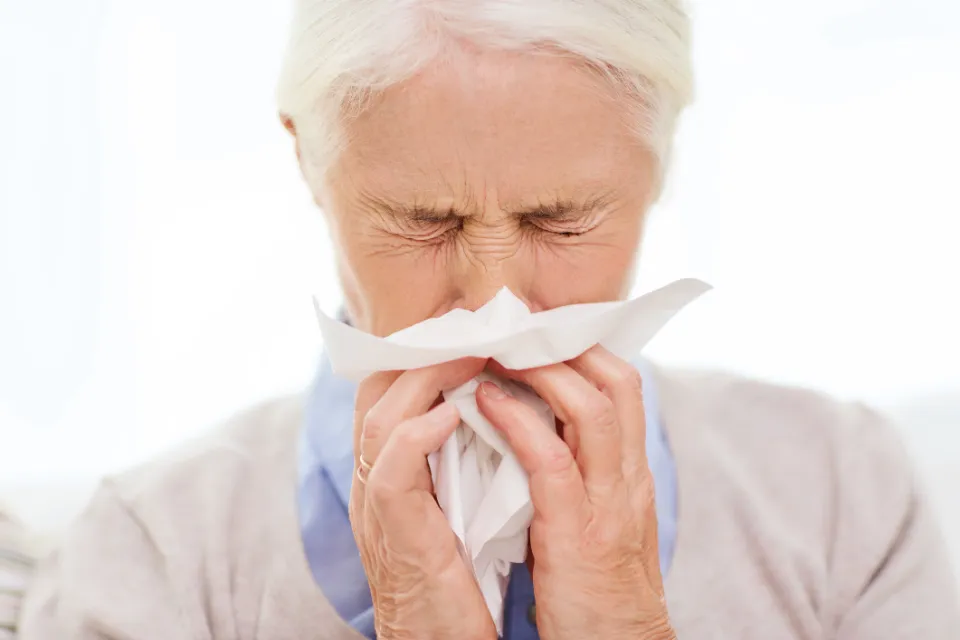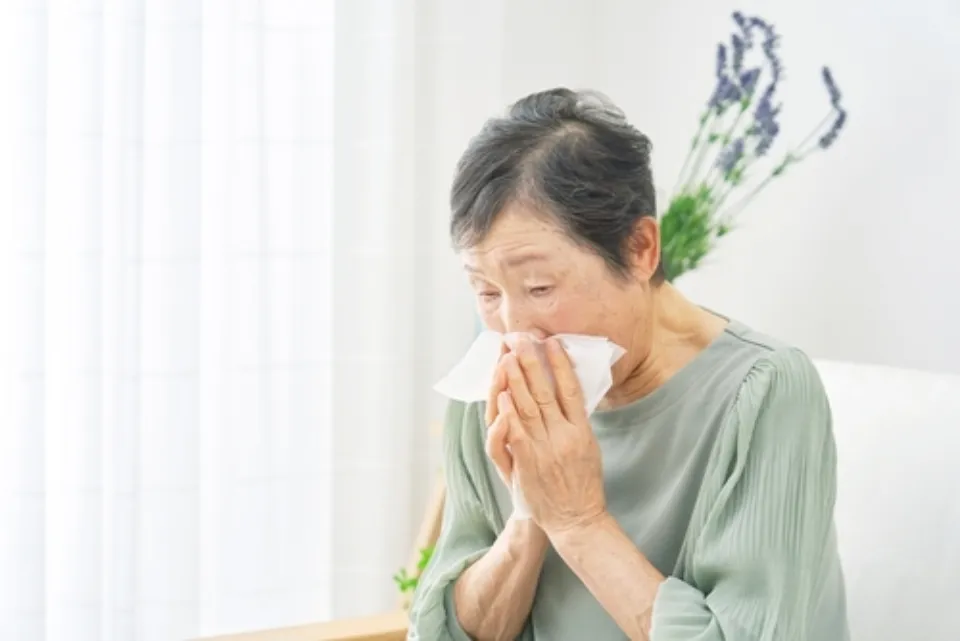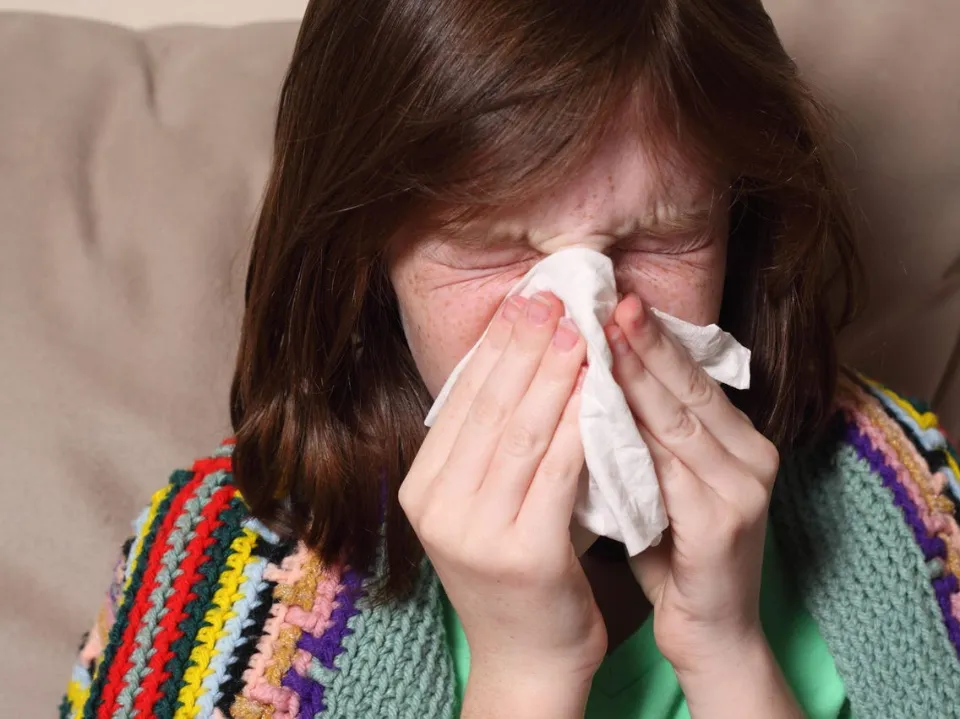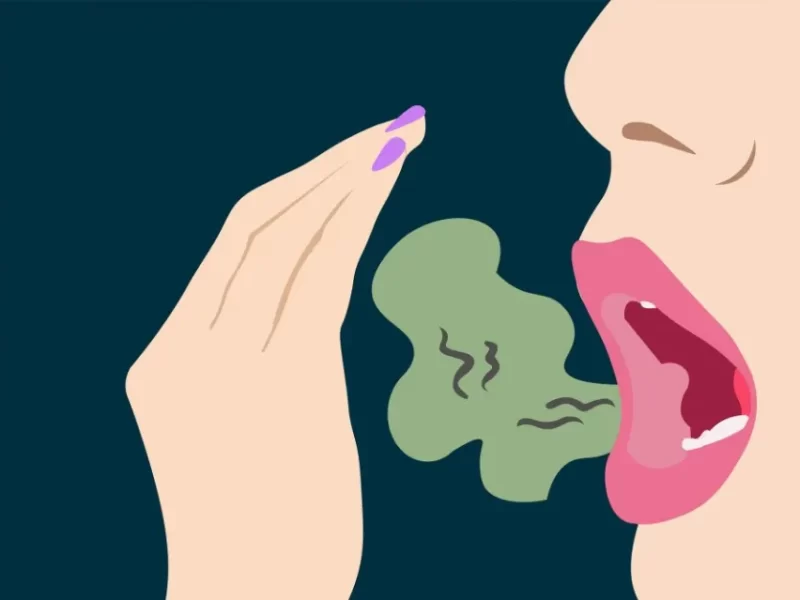Your nose may be infected with a virus or have another medical condition if it is consistently dripping clear mucus. Your symptoms might go away if the underlying issue is treated.
You might occasionally experience a persistent runny nose with clear fluid.
We’ll look at a few of the reasons why someone might constantly have a runny nose with clear fluid below. We’ll talk about how you can reduce your symptoms as well as warning signs that a visit to the doctor might be necessary.
Causes of Nose Running
Increased nasal mucus production is the cause of a runny nose. A runny nose can have a variety of causes, but the tissues inside the nose most frequently become inflamed. This is referred to as rhinitis.
Your postnasal drip or your nose, depending on how much extra fluid is produced, may be the site of the drainage. The medical term for a runny nose with thin, clear fluid is rhinorrhea, despite the fact that nasal mucus can come in a variety of colors.
Let’s now look at a few possible reasons why you might constantly have a clear liquid runny nose.

Allergies
Chronic runny nose is frequently brought on by allergies. Hay fever or allergic rhinitis are the terms used to describe allergies that affect your nose.
Your immune system overreacts to something typically harmless, like pollen, mold, or pet dander, resulting in allergic rhinitis. Your nasal passages become inflamed as a result, which increases mucus production.
Allergic rhinitis frequently causes thin, watery, and clear nasal discharge. It could continue for as long as an allergen, which is a specific allergy trigger, is present in your environment.
In addition to a runny nose, some other symptoms of allergic rhinitis include:
- Sneezing
- Nasal congestion
- Itching, which can affect your eyes, nose, and throat
- Eyes that are red or watery
- Eyelids that appear swollen or puffy
- Coughing
- Irritability, especially in children
Non-allergic Rhinitis
Nasal symptoms that appear without allergies or an infection are referred to as non-allergic rhinitis. This condition is thought to be brought on by increased blood flow in the nose. Swelling and a rise in mucus production may result from this.
While the exact biological cause of non-allergic rhinitis is unknown, a variety of factors can trigger it, including:
- Foods: While symptoms can appear whenever you eat, they may become more likely if you consume spicy or hot food. Symptoms may also be brought on by alcohol.
- Medications: Non-allergic rhinitis symptoms can result from taking some medications.
- Irritants: Some examples of irritants that may trigger non-allergic rhinitis
- Changes in weather: Non-allergic rhinitis symptoms can be brought on by changes in temperature or humidity.
- Hormone fluctuations: Non-allergic rhinitis can be brought on by hormonal changes brought on by conditions such as hypothyroidism, menstruation, and pregnancy.
- Stress: Non-allergic rhinitis symptoms can also be brought on by an increase in stress levels.
One of the signs of non-allergic rhinitis is a runny nose with thin, clear, and watery discharge. Other symptoms may include:
- Nasal congestion
- Postnasal drip
- Sneezing
- Coughing
Chronic (long-lasting) rhinitis is rhinitis that is not allergic in nature. Its symptoms may be sporadic, ongoing, or only present at certain times of the year.
Non-allergic rhinitis treatment focuses on using medications to treat symptoms as they arise.
Viral Infections
The tissues of your nose and throat are attacked by viral infections like the common cold and the flu. To help trap and remove viral particles, your nose produces more mucus in response. A persistent runny nose with clear liquid may result from this.
In addition to a runny nose, some of the common symptoms of a respiratory virus infection include:
- Coughing
- Sneezing
- Fever
- Fatigue
- Sore throat
- Body aches and pains
It’s crucial to remember that the virus causing the infection may have an impact on whether or not certain symptoms appear and how frequently they do so. For example, a runny nose happens more oftenTrusted Source with the common cold than with the flu.
A runny nose due to the common cold can last from 10 to 14 days. Most flu symptoms will go away in 3 to 7 days, although fatigue and cough may linger for two weeks or longer.
How to Finally Stop Your Running Nose?
Eliminate Triggers
If allergies are to blame, you must determine your triggers. Make an appointment with an allergist and get tested for allergies. It might be feathers, dust mites, mold, pollen, or animal dander. Getting rid of the allergen or using air filters can help. You may need to avoid foods like onions, peppers, and spices if they make your nose runny when they are consumed. Avoiding cold, dry air and synthetic fragrances will help prevent nasal irritation.

Take An Antihistamine
Antihistamine usage on a regular basis can significantly reduce or even get rid of your runny nose. Allergy symptoms can be controlled by preventing the release of histamine. Finding an oral or intranasal antihistamine that is effective for you may take some time. You may need to take it throughout the year or only during certain seasons, depending on the allergy trigger.
Use a Corticosteroid Nasal Spray
Fluticasone and other intranasal corticosteroids reduce sinus cavity inflammation. The sinus dripping will stop when the inflammation is reduced. In particular for allergy sufferers, nasal corticosteroids are very effective at treating sinus problems. They have few negative side effects and can be used for a long time.
Irrigate, Irrigate, Irrigate
Using nasal irrigation devices, neti pots, or saline sprays to flush out your sinus cavities is sometimes the best course of action. Each technique clears your nasal passages by forcing salted water through them. Typically, the saline will enter through one nostril and exit through the other, expelling mucus, allergens, viruses, or bacteria. To keep your runny nose under control, you must irrigate your sinuses at least twice per day.
Try a Nerve-Blocking Nasal Spray
Try taking ipratropium bromide on a prescription if you have vasomotor rhinitis and a persistent runny nose. This nasal spray inhibits the overactive nerves that are the source of persistent nose dripping. Additionally, if spicy foods are a trigger for you, you can use this medication. It is helpful, but the effects only last for about 4 hours.
Opt for Cryotherapy
Another fantastic treatment option for vasomotor rhinitis and other persistent runny nose conditions is cryotherapy, such as ClariFix. In order to stop those overactive nerves from producing excessive mucus, a nose doctor will use sub-freezing temperatures. Following completion of treatment, patients frequently experience a 60–70% reduction in sinus drip. Results can last for years.
Summary
In addition to allergies and the common cold, other underlying conditions can also cause a runny nose. Self-care can frequently help a runny nose resolve on its own. If your nasal discharge is painful, yellow or green, or if it is accompanied by other symptoms, you should see a doctor.
FAQs
Why is My Nose Runny in the Morning?
Allergic rhinitis frequently results in a runny nose (rhinorrhea) in the morning. When you are exposed to an allergen while you are sleeping, it can cause allergic rhinitis, which results in mucus production and swelling of the mucous membranes. This may include dust, dust mites, pollen, rodent or roach waste, or even just plain old dust.
When is a Runny Nose Contagious?
When a runny nose (rhinorrhea) is related to a cold, that is, when it is not an allergic reaction or a result of cold weather, it is contagious. As a result, your runny nose may be contagious if you also exhibit other cold or flu symptoms, such as a fever, chills, or a sore throat.



